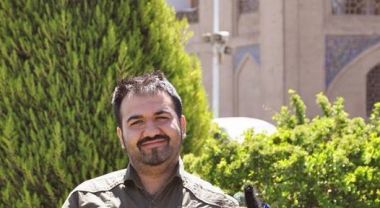Iran: Man accused of blasphemy taken off death row to study theology

An Iranian man who was on death row for blasphemy against the Prophet Muhammed has had his sentence commuted to studying theology and reading 13 religious books, according to The Guardian.
Soheil Arabi, who was arrested in 2013, was sentenced to death for his Facebook activity which allegedly insulted the prophet Muhammad, a crime punishable by death in Iran.
A higher court has now annulled Arabi's death penalty, the first decision of its kind to be made by a judiciary court in Iran. Instead, they have sentenced him to 90 days in jail and two years of studying theology, including reading a set of 13 religious books.
This 90 day sentence will be added to a separate seven-and-a-half years he is serving for allegedly insulting the supreme leader, Ayatollah Ali Khamenei.
Arabi will be required to write a 5-10 page summary of each of the 13 religious books he has been sentenced to read. He will then have to write an article on religion referencing at least five of these books.
The number of people on death row in Iran for blasphemy, heresy or other religious grounds is unknown. Last year, a 37-year-old man was executed for insulting the prophet Jonah by interpreting the story symbolically and thus "spreading corruption on earth."
Amnesty have welcomed the development but said Arabi should not have been put in prison in the first place.
Nassim Papayiann, Amnesty's campaigner on Iran said: "International law clearly protects the right to criticise political leaders and religious institutions, even if the criticisms are thought to be shocking or offensive. A sentence that requires an individual to serve time in prison, study theology and read certain books as a punishment, if handed down for peacefully exercised their freedom of expression, clearly tramples over a range of rights, including the right to freedom of belief."
The use of social media and internet policing in Iran is a concern:
"The increasing, and sometimes creative, ways in which the Iranian authorities are cracking down on freedom of expression, particularly on social media, is truly alarming and goes counter to the fundamental principles of human rights," Papayianni said.











